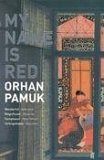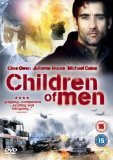Рissing & sleet … Social science that reads like science! … ‚Itzt‘
17th of January, 2007 POST·MERIDIEM 09:08
Complaining about the system over at Metatalk seems to be roughly
comparable to рissing into sleet; there’s an initial relief from the act,
and then you look like an idiot (whether because you didn’t understand that
complaining won’t lead to any useful changes, or because you’re covered in
urine) and have to deal with negative long-term consequences (because
anything negative you say won’t be taken seriously as a consequence of your
earlier misjudgement, or because you’ve come down with pneumonia). So have
some patience with me while I vent here for a second:
- Since the line breaks were removed from this post, I look at its
single paragraph, and I say, ‘nope, not going to bother reading that one,
too dense to understand.’ And I wrote it.
- You can add HTML markup to post titles, and they will appear in preview, but not in
the final post. This is fuсking elementary web dev—maybe I should find
more Usenet groups that interest me instead, since the basics are long
worked out there.
-
The RSS feed, here, trashes
non-ASCII characters, needlessly, since it declares its encoding to be
UTF-8. Including those needed for properly-typeset English. This is fuсking
elementary web dev—maybe I should find more Usenet groups that interest me
instead, since the basics are long worked out there.
Unrelatedly, one site that I’ve found hugely insightful lately and over the
last few years has been that of the Oxford Social Issues Research Centre, an English
social-sciences body of which I was reminded by this
entry in Danny O’Brien’s
wishlist. The article that made me a fan was the Passport to the Pub, in which
I saw some things I knew but had never seen articulated anywhere before, and
other things I didn’t know at all (one of them being that there’s a
vaguely competitive complimenting/self-deprecating circle in female
interaction there, which made some previous experience clearer).
Word of the day; itzt is an archaic version of
jetzt, the German word for ‘now.’
The White Castle … My Name is Red … Children of Men … Автобус
13th of January, 2007 POST·MERIDIEM 09:05
This entry is an entry of reviews. And Soviet bus stops. Yes, I know that a
disadvantage of my omnivorous interests is that you’re probably not that
interested in all of what I’m writing; but I fear were I to limit myself to
a particular subject area, there would be even less to read here.
The White Castle, Orhan Pamuk: Written from the perspective of an Italian
taken prisoner and made slave and personal confidant of his physical
Doppelgänger in Ottoman Istanbul, the book gives an insight into that
society I hadn’t come across in my previous reading. For example; when
you’re a slave, it’s a relatively natural state to do what you’re told, not
remotely energetically or carefully. And as everyone who’s done something
relatively complicated for a living knows, such work done carelessly and
listlessly is almost valueless—and the work this educated Italian slave had
to do was relatively complicated. The book is as self-consciously literary
as you’d expect from a Nobel prize in Literature winner, and it also does
the post-modern thing adequately, though not as deftly as Umberto Eco
manages.
It is short, too, which is nice when you have a stack of books in various languages, only one of which you can read quickly, on your work table. Together with work for money, diverting work for free, catching up with friends ... okay, not everyone has that exact combination, but everyone is short of time, I fear :-( .
My Name is Red, Orhan Pamuk: A murder mystery set in the community of
miniaturists—the people who drew those cute, cartoonish illustrations to
books in the Islamic world—in the Istanbul of 1591. One thing that struck
me about the story, or rather the style and context within which the story
was told, was how many things linked Ottoman Turkey with Persia and Mogul
India and the rest of
dar al Islam; it really was a mutually
communicative network of cultures, a Kulturbund as
John
R. Perry
puts it. You had constant cross-references to
communities of miniaturists in Herat in Iran, to Sultanates in Bukhara and
Samarqand in Central Asia, you had a Persian miniaturist seriously
considering moving to Agra because the Khan there was an admirer of this
form of art and there would have been no language barrier for him at that
Persian-speaking court.
I find the culture of the miniaturists has lots of similarities with the
culture of software developers; a conservatism, an adherence to norms
established in the past because they were associated with success, when it’s
clear to the critical thinker that those who had success with that
particular combination of techniques owed it to a subset of them, and the
strife over the non-essential techniques are thus comical. (And okay, if
your standard of proof is high, it’s not that clear that the techniques in
question are non-essential.) And of course, there’s a love story, and I like
the way he wrote it; the same idiotic people of every real life interaction
and every soap opera, in this other place and other world.
The Children of Men, film, 2006: Set in
Britain in 2027, in a context where no child has been born since
2009. Britain is doing its general competence thing quite well, as the rest
of the world breaks down (though I am bemused at the implication, from a
German-speaking pensioner being herded into a cage, that Germany has broken
down before Britain). The main character is played by
Clive Owen whom I like
immensely in this role, in contrast to the Amazon.com reviews of the central
character; the sort of person who puts a shot of whiskey into the coffee
bought on the way to work, while still holding down the (moderately
interesting) job, is my sort of person.
Julianne Moore is beautiful, and the film in general is more realist—and
thus more to my taste—than lots of other science fiction; I wonder how the
cars will look to people in twenty years’ time, but at least they went to
the trouble of modifying them so they don’t look like they’re from 2006. And
I like the ending. So, yeah, watch the film if you have that sceptical spirit,
keep the fuсk away if you don’t.
The Soviet Roadside
bus-stop: As they say,
For the most part Soviet architecture and design is
remembered for its heavy block buildings and functionally Spartan
designs. Its overpowering desire for conformity left little room for
individual creative freedom. A notable exceptions to this is in the
transportation sector. One can admire this creativity in the Metro stations
of cities like Moscow and Tashkent where the coldness and sterility of
typical soviet urban architecture is abandoned and costs are not spared as
creative freedom is unleashed. While many of us are aware of the elaborate
splendor of the Moscow underground, it is easy to overlook the phenomenon of
the common roadside bus stop as an example of soviet art and design letting
loose and becoming a little weird and crazy.
Go have a look; they’re super-diverting.
Word of the day: автобус is Tajik for ‘bus,’ from the
Latin via Russian.




Last comment from Ste on the 15th of January at 15:15
Interesting the comparitive cost in Slave / Horse prices, I wonder what the comparisson in associated costs in terms of feed, housing, medical care, escape prevention and so forth looks like.
As to the bus stops, it is an awful shame that they are being neglected, I guess they aren’t high on anyone’s priority list.